I am not an expert or doctor or therapist or trained in any way. I'm…
When Your Autistic Child Suffers From Night Terrors And Is Unable To Sleep
Ayub used to suffer from horrible night terrors and had trouble sleeping. He’s much better now but sometimes he will still scream in the night and have us running to his room.
Since Ayub’s diagnosis of autism last year, so much of his past behaviour makes sense. I always thought all these quirks were separate incidents that just made up what he is. But really they’re all part of being on the spectrum. It makes me feel a little better knowing there are other people like Ayub, and that he’s not alone.
What’s the difference between a nightmare and a night terror?
Nightmares happen during REM sleep, that dreamy in-between zone when you’re in the middle of being asleep and being awake. Night terrors happen during deep sleep. There is no dreaming. For some people, they can look awake with eyes wide open, but are actually still experiencing a night terror. They can’t see you and are trapped within the night terror.
Sounds horrifying right?
Ayub has night terrors constantly
Apparently this is something that happens to people with autism. From the time he was a baby until he was around 5 years old, Ayub suffered from night terrors several times a month. He would scream, cry, kick and flail his body around, shouting for help.
It was scary and heartbreaking to watch when he was a baby. I used to think “something” was disturbing him. But yeah, now I know better.
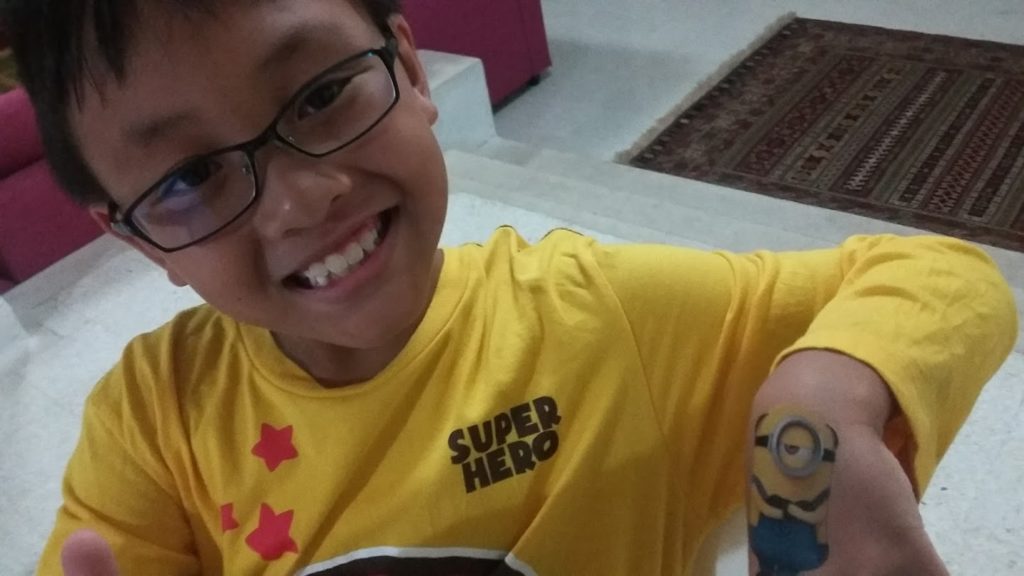
His body would just be gripped with fear. I would call his name and beg him to wake up but he couldn’t hear me. Then I’d pull him up to a sitting position and hug him tight to try to wake him. If that still didn’t work, I’d switch on all the lights, either try to get him to stand up or carry him. Just keep calling him.
Eventually he would calm down and continue sleeping. He never ever remembers a thing the next day. I think that’s a good thing. I’d rather he didn’t remember.
Helping Ayub deal with night terrors through prevention
You can’t totally prevent night terrors, but I took certain steps to help minimize them.
1.Putting him on a strict schedule
Ayub needs schedules and routine, he responds really well to them. He’s doesn’t do well with change, he needs predictability. Every time we had to change schools or move house, he would suffer from a week of night terrors.
7am: Time to wake up, brush teeth, get dressed
7.30am: Breakfast
8:15am: School
2:30pm: Home
6pm: Shower and get ready for bed
7pm: Dinner
8pm: Bedtime
Even though there’s no school on weekends, he still follows the same schedule. School is just replaced with other fun activities.
2. Limiting new and exciting experiences
As someone on the spectrum, Ayub easily gets sensory overloads. Just too many sights, sounds, and excitement. He can be super happy during the day, doing whatever activity I’ve planned for him. Then he’ll just explode during a night terror later. Violently shaking and screaming bloody murder.
This happens often when we’re on holiday or if we simply do too many things in one day.
Once we went to LEGOLAND and it was the happiest day ever for him. He loves LEGO. He rode all the rollercoasters, laughing and singing and playing all day. Ayub was so excited. We bought him a LEGO set and he spent hours building it. The park is amazing. And of course, there’s a lot of sound and noise and people and things and everything is new and different and…
Ayub screamed and screamed through the night. All those new sensory experiences just caught up with him and his brain couldn’t take it. Poor baby.

So now I try to only do one thing a day. Like, if we go to RIUH in the morning, we’ll stay home the rest of the evening. Or if we want to go out for a dinner, we’ll stay home during the day.
Ayub still gets to have fun and try new things, but we do it in smaller doses and not all at once.
3. Allowing him to choose his sleep environment and routine
Ayub is very meticulous in his routines. He has his own night time routine that includes reading time, relaxing time, and hugging time. He needs his room to be pitch black. His pillows have to be a certain way, his blanket another way. You can never use a different pillow. It always has to be these two specific pillows. (We travel with them when on holiday other wise he can’t sleep).

Sweet Sulaiman though. They share a room. He’s scared of the dark. He is the most patient, wonderful, brilliant person I’ve ever met. He doesn’t understand what autism is. But he understands Ayub.
4. Having a stable home
I don’t really know how to phrase this but basically my first marriage was not a happy marriage, for both me and my ex. There was a lot of resentment and anger, arguments and disappearing acts. I believe it affected Ayub negatively for the first 5 years of his life. He used to sleep with a toy gun under his pillow so that he could protect me. I don’t think he remembers that. I really hope he doesn’t.
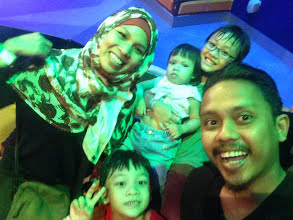
Mr Ninja came into our lives a few months later and they were instantly best buds. Ayub was the first to call him ‘Ayah’, is constantly hugging him and holding his hand, and wants to be “just like Ayah” when he grows up. It was the stability we didn’t know we needed.
Yeah, Mr Ninja’s presence made our house a home. Mr Ninja doesn’t realise it because he doesn’t know what it was like before. But Ayub transformed into a happy child. From daily meltdowns during the day and horrible night terrors through the night, Ayub just kinda stopped. And I think it’s because of Mr Ninja giving him all that love and support.
Will the night terrors ever stop?
I have no idea. But I think this year, Ayub only had around 3 bad nights. And he recovers from them much faster than before. Some doctors prescribe melatonin supplements to help people with ASD sleep better. It hasn’t come to that point for Ayub, and I hope it never will.
Of course, time will tell. I can’t always protect him but I’ll always try.
Night terrors are such a bitch.









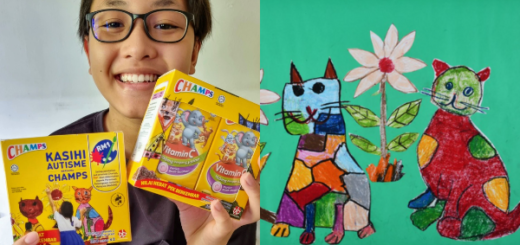

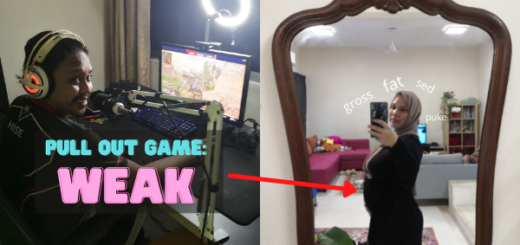







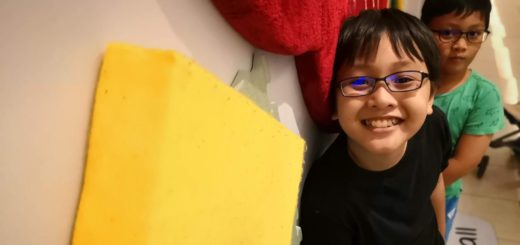

Facebook Comments